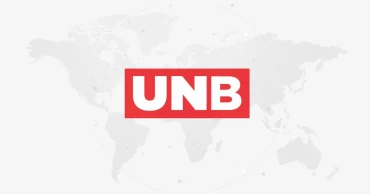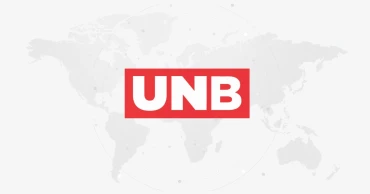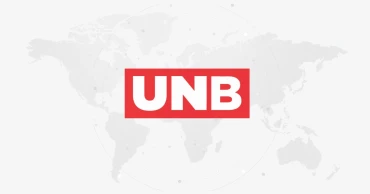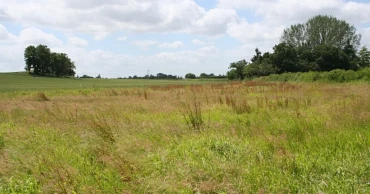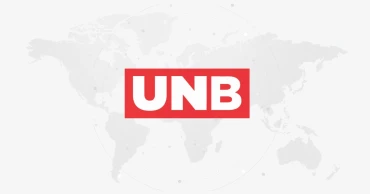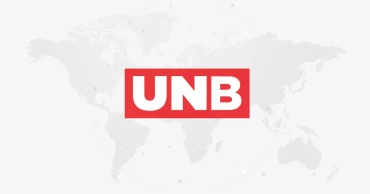Invest
Investing in education means investing in Bangladesh future: Salehuddin
Finance Adviser Dr Salehuddin Ahmed on Saturday said spending on education is always an investment in the nation’s future.
“By investing in education, we are not merely helping individual students—we are shaping the future of the country,” he said while addressing a scholarship distribution ceremony of the Brahmanbaria District Association, Dhaka.
He praised Brahmanbaria as the ‘Land of Heritage and Harmony’, and lauded the community’s unity and vision for building a district recognised for knowledge, culture and innovation.
The Association hosted its Executive Committee Installation and Scholarship Award Ceremony at International Convention City Bashundhara (ICCB), highlighting both the district’s heritage and its ongoing commitment to education and social advancement.
A total of 312 scholarships were distributed among meritorious students—25 at Honours level, 182 at HSC level, and 105 at SSC level, aimed at nurturing academic excellence and creating opportunities for Brahmanbaria’s youth.
Quality services needed to boost revenue collection: Finance adviser
Brahmanbaria District Association President MA Khalek said the district has a proud tradition of producing leaders, scholars and artists. “Today we renew our commitment to building a Brahmanbaria recognised for its talent and contribution, not for negative stereotypes,” he said.
General Secretary Engineer Md Khaled Hossain Mahbub (Shyamal) said the gathering was ‘a call to action’ to create and uphold a positive image of Brahmanbaria across Bangladesh and beyond.
The event ended with cultural performances showcasing the rich traditions of the district, reinforcing the message of unity and pride in its heritage.
5 months ago
Small investors’ woes in stock market not over yet
Small investors in Bangladesh’s stock market remain trapped, with their woes persisting due to a lack of confidence, weak governance and economic instability, despite assurances from regulators of an eventual market rebound, according to experts.
“No one, not even the regulator or stock market authorities, pays heed to our screams,” said Saiful Islam, a grocery owner and one of the affected investors,” in a broken voice while talking to UNB regarding the capital market.
Saiful invested Tk 14 lakh in 2010 to buy shares of different companies listed in the Dhaka Stock Exchange (DSE).
Dhaka stocks drop in early trading today
After graduating in 2004, Saiful found no suitable job and then started a small business in the Motijheel area in 2007 with support from his father-in-law.
He made a good profit in the business and invested the money in the share market.
In 2010, Saiful invested around Tk 14 lakh, of which Tk 6 lakh was his own and Tk 8 lakh he borrowed from relatives. All of his investment was stuck in shares of different companies due to a major scam in the capital market in 2011.
Like Saiful, thousands of investors lost their hard-earned capital in 2011, and after that, some were able to regain part of their capital. However, most of them left the capital market, losing nearly all their investment.
Many such investors are still in the market, hoping for a rebound in the DSE, but without any good news.
DSEX drops by 43 points as prices of 288 companies fall, Chittagong Stock Exchange follows suit
There is no sign of lifting the floor price before the next election. However, economists say that people do not have confidence in the market. The BSEC advises investors to remain patient.
Analysts say that the small investors’ woes in the capital market are unlikely to end before the national election as their wait for a good time is prolonged by Bangladesh’s recent ‘instability’.
The small investors’ shares were once stuck at the floor price (minimum sale rate) due to the overall economic downturn. The floor price barrier ended after the change in government in Bangladesh.
However, the prices of most companies' shares have not increased to the desired level for small investors.
Dhaka Stock Exchange sees early week gains
This has been painful for many unfortunate small investors in the capital markets, according to market analysts.
Policymakers and the Bangladesh Securities and Exchange Commission (BSEC) paint a rosy picture for small investors, saying that the stock markets will rebound with the enlistment of new companies and the injection of large investments. However, the situation for small investors seems hopeless.
A large number of shareholders have been stuck with their investments in the capital market for over a decade amid fading hopes.
Experts' Analysis
Dr ABM Mirza Azizul Islam, an economist and former adviser of a caretaker government, told UNB that there has been a crisis of confidence among investors in the stock market for a long time.
“To this are added various economic crises, the international situation, and everything, including elections and national politics. As a result, first of all, steps should be taken to eliminate the trust crisis. In this case, trust should be ensured by establishing good governance,” he added.
Dhaka Stock Exchange slips below 5,400-point as Islami Bank shares plummet nearly 10%
“That means investors have to be assured that if someone steals their money through manipulation, they will be prosecuted. Besides, the supply of good shares should be increased. Through these two steps, it is possible to solve the market problem. But it is not easy at all,” said Dr Azizul Islam.
Dr Abu Ahmed, Chairman of the Investment Corporation of Bangladesh (ICB) and former professor of Dhaka University’s Economics Department, said there are two crises in the market: one on the demand side and the other in investor confidence.
On the supply side, he said, the problem is that there are fewer good companies. As a result, it is a win-win situation for manipulation and syndicates. “All in all, the stock market is currently in an unstable condition and the situation is gradually getting worse. The passage from here is very difficult,” he said.
Ahmed also noted that people are sometimes investing in weak shares with the expectation of a big profit, which is not the right way of investing due to a lack of financial literacy.
Read mnore: Share Market Investment Guide: How to Invest in Stocks in Bangladesh
1 year ago
How to Invest in Bonds: A Comprehensive Guide
Bonds are used by issuers to raise money from the capital market. In layman's terms, bonds are essentially instruments of debt created between the lender and the borrower. During certain economic situations, there might be a need for capital generation. As a result, it's normal to see a host of bonds being circulated in the market.
But how do you know which bond is right for you? What factors should you consider before investing in a certain bond? Let’s find out.
Types of Bonds
There are several ways to classify bonds. The most common ones are based on issuer, maturity, interest payment structure, and features. Let’s look at the different bonds under each basis.
Based on Issuer
Treasury Bonds
Treasury bonds are issued by the central bank directly on behalf of the government. For short-term investments, an alternative to treasury bonds can be treasury bills.
Read more: How to Buy Stocks: 10 Key Factors to Check
Municipal Bonds
Countries with provincial and local government structures may issue municipal bonds based on the government entity. It works the same way as treasury bonds.
Agency Bonds
Agency bonds are issued by government-affiliated or controlled entities. For example, a government-sponsored enterprise like Biman can issue bonds to raise capital to improve its infrastructure and service.
Investment Grade Bonds
Investment-grade bonds are issued by entities with high credit ratings. Typically the coupon rate for such bonds is low and the investment is more secure.
Junk Bonds
These bonds are issued by companies with low credit ratings and high default probabilities. The returns from these bonds are high whereas the overall investment is less secured.
Supranational Bonds
These types of bonds are issued by international entities like investment banks and the World Bank. The denomination of these bonds is not geographically limited.
Read more: Premortem Analysis: How to Anticipate Failure
Based on Maturity
Short Term Bonds
Short-term bonds usually have a maturity of less than three years. Treasury bills also fall under the short-term bond structure.
Medium Term Bonds
Medium-term bonds have a maturity period between 4 to 10 years.
Long Term Bonds
Long-term bonds usually have a maturity period of over 10 years. It also includes perpetual bonds.
Read more: How to Buy Bangladesh Government Treasury Bond: Everything You Need to Know
Based on the Interest Payment Structure
Fixed-Rate Bonds
Fixed-rate bonds usually have a fixed coupon rate throughout the maturity period of the bond. For example, the Bangladesh Government Treasury Bond is a fixed-rate bond.
Floating-Rate Bonds
Floating-rate bonds can fluctuate compared to a benchmark rate set at the start of bond sales. Here, the coupon rate varies during the lifetime of the bond.
Zero-Coupon Bonds
These types of bonds do not pay any periodic interest rate. Instead, these bonds are sold at a discount and the investor gets back the face value of the investment upon maturity.
Read more: Gold vs Diamond: Which Should You Choose for Investment?
Based on Features
Convertible Bonds
Bonds that can be transformed into predetermined shares of the borrowing entity.
Callable Bonds
Bonds that can be redeemed by the issuer before it reaches maturity.
Puttable Bonds
Bonds that can be sold by the investor to the issuer at a predetermined price before maturity.
Read more: Shares vs Bonds: What is the Ideal Investment Opportunity
Perpetual Bonds
Bonds that do not have any maturity date.
Inflation-Adjusted Bonds
Bonds whose coupon rate and the principal are adjusted per the inflation rate.
Sukuk
Bonds issued in line with the Islamic laws.
Read more: How to Raise Angel Investment for Startups in Bangladesh
1 year ago
Many renowned Saudi companies interested to invest in Bangladesh: Ambassador
Ambassador of the Kingdom of Saudi Arabia to Bangladesh, Essa bin Yousef Al Duhailan, has said Bangladesh is an emerging economic power in Southeast Asia, and Saudi Arabia is keen to invest in various sectors of Bangladesh.
“Many renowned Saudi companies and investors have shown keen interest in investing in different sectors,” he said in a message marking the 93rd Saudi National Day.
The Saudi Embassy will celebrate the day in Dhaka on September 26. The Saudi National Day, however, falls on September 23.
The ambassador said the Kingdom has also provided financial assistance for different projects, like building houses, schools, mosques, orphanages, and shelters for protection from natural disasters, as well as establishing hospitals, bridges, and power plants.
Read: Japan wants to increase investment in Bangladesh: Japanese envoy told FBCCI
He said the Saudi-Bangladesh relations were strengthened after the visit of Prime Minister Sheikh Hasina to the Kingdom in 2016 and meeting with the King of Saudi Arabia, King Salman Bin Abdul Aziz Al Saud, as well as visits by a number of Saudi ministers who accompanied high-level officials from the Kingdom to Bangladesh.
The Saudi ambassador also said relationship between the two countries is deep-rooted and outstanding, based on a strong foundation of religious and cultural ties.
“Saudi Arabia is accustomed to standing beside Bangladesh and helping it, especially in times of hardship. The Bangladeshi nation loves Islam and the Kingdom wholeheartedly, which gives great importance to the Kingdom of Saudi Arabia,” he said.
Read: PM Hasina seeks Dutch investment in Bangladesh shipbuilding sector
The envoy mentioned that millions of Bangladeshis are working in different sectors in the Kingdom, which is recognized as the “greatest labor market in the world.”
“The Kingdom has made a great contribution to the betterment of the living standards of this country, as migrant workers are sending remittances to their beloved family members constantly,” he said. The Saudi ambassador said the Kingdom is leading in always extending its hand for cooperation and helps Bangladesh whenever it is affected by disasters.
Read more: US investment in Bangladesh's tech market to pave the way for the development of digital economy of two countries: Palak
2 years ago
Gold vs Diamond: Which Should You Choose for Investment?
Are you considering investing in precious materials but unsure whether to choose gold or diamonds? Understanding their key differences is crucial when making investment decisions. In this article, we will weigh in on the benefits and shortcomings of both gold and diamonds. By the end, you'll have the insights you need to determine which investment aligns best with your financial goals and risk appetite.
Advantages of Investing in Gold
Safe-Haven Asset:
Gold is often considered a safe-haven asset during economic uncertainties and market volatility. It tends to retain its value and can act as a hedge against inflation and currency fluctuations.
Diversification Benefits:
Adding gold to an investment portfolio can provide diversification benefits, as it typically has a low correlation with other assets like stocks and bonds. This can help reduce overall portfolio risk.
Read more: Gold Buyer's Guide: Know the types, colors, karats of the precious metal
Tangible Asset:
Gold is a physical asset that you can hold in the form of coins, bars, or jewellery. This tangibility can provide a sense of security and ownership compared to other investments like stocks or bonds.
2 years ago
What to Consider Before Investing in a Startup or Company?
Investing in a startup or company can be an exciting opportunity, but it can also be a risky one. Before deciding to invest, several key factors should be carefully considered to help minimize the risks and increase the chances of a successful investment. By taking the time to thoroughly evaluate all the necessary factors, investors can make informed decisions. This article will explore these considerations in more detail and discuss how to evaluate potential investment opportunities.
11 Factors to Consider Before Investing in a Startup or Company
There are numerous reasons why a startup can fail – ranging from unfortunate circumstances to an inadequate business plan or poor timing. According to statistics from the US Bureau of Labor, approximately 20% of newly established businesses do not survive beyond their first year of operation. The following factors need to be considered before making an investment decision.
Analyze the Domain
We all have experience working within certain industries or possess a personal interest in particular sectors. To increase the likelihood of successful investment, it is advisable to seek out startups that align with one's area of expertise or interest. This enables one to better comprehend the business and its potential, thereby allowing one to invest with confidence.
Read More: How to Buy Sanchayapatra in Bangladesh in 2023: A Beginner's Guide
Conversely, investing in startups from unfamiliar sectors may make it difficult to accurately evaluate the business and make informed investment decisions.
Business Plan
When listening to startup founders pitch their ideas, it is important that their plans appear well-thought-out and not untested ideas with uncertain profitability. For early-stage investments, it is advisable to prioritize startups with practical and scalable concepts.
Before investing, it is essential to gain a thorough understanding of the company's framework and processes. Additionally, the business idea should be innovative and fresh and offer solutions to existing problems.
Read More: What to Consider Before Buying Land: A Step-by-Step Guide
Check the Confidence in Founders
A truly innovative idea can be captivating, especially when presented by a passionate founder. While venture investors primarily assess the team, the capability to execute the plan should be given priority. It is not uncommon for startups to be founded by individuals without prior experience in launching new ventures.
However, they must demonstrate their ability to transform an idea into a reality through past experience or accomplishments.
2 years ago
What to Consider Before Buying Land: A Step-by-Step Guide
Buying a piece of land is a lifelong dream for many. While it might sound like any other transactional purchase, there are a lot of factors associated with buying land. Whether it’s the price, location, ownership, and even taxes – a potential buyer has to consider a lot of aspects before heading on to purchase land. There are also instances of fraudulent transactions and joint ownership. So, what’s the best way to purchase land? And what should be the prime considerations before purchasing land? Let’s find out.
Is Purchasing Land a Good Investment?
There’s a saying that land is one of the most secure investment options. While the inflation rate is increasing day by day and the value of currency is decreasing, investing in a tangible asset like land is rationally a good investment. But that investment also depends on several factors.
Location
Location plays a huge role in the overall ROI from land purchase. A simple example will make it obvious. A survey shows that between 1990 to 2010, per katha land in the Gulshan area has seen a price increment of over 1036%. And the story is somewhat similar in all the urban areas across the country.
Read More: Shares vs Bonds: What is the Ideal Investment Opportunity
Zoning Regulations
The price of land also depends on the zoning regulations. For example, there might be zoning regulations for commercial, residential, and office spaces. Some areas might have zoning against new developments. It’s important to check the zoning regulations before purchasing land.
Intended Use
The type of land also factors in the investment decision. For example, land suitable for agricultural production will have less value compared to land intended for residential use. So, make sure to have the right pricing strategy while buying land.
Upfront Cost
Land purchase is not as simple as just another transaction. Upfront costs regarding the survey, registration, and taxes are something that should be factored in as a total cumulative investment decision.
Read More: Making Investment Decisions: Factors to consider when investing money
Long-Term Investment
Purchasing land as an investment is a long-haul game. Land prices do not appreciate overnight. It might be years or decades before there is a substantial increment in value. So long-term commitment should also be considered while investing in land.
Factors to Consider Before Buying Land
There are several factors to consider before purchasing land. Usual pricing and market overviews aside, a person should consider several aspects of ownership and transfer of ownership of an immovable property like land.
Record of Rights/Ownership Rights
The ownership of land is documented in several government documents issued by the land office under the Ministry of Land. These documents are the legal tender that verifies the ownership as well as the ability to transfer the ownership to a different person.
Read More: Plot vs Apartment: Which is the Better Investment Option?
To ensure there are no fraudulent activities associated with the land, the relevant documents should be checked by a land lawyer.
Sales Deed
The sales deed is the document outlining the ownership of the land through generations. The detailed sales deed can be found in the sub-registry office of the local area. A person can obtain a certified copy of the sales deed by paying the government stipulated fees.
At least 10 to 25 years of sales deed should be checked to ensure that there is no ownership-related issue with the land. In the case of inheritance, the inheritance deed (“Bontonnama”) should also be checked.
Read More: Apartment Buying Mistakes to Avoid to Secure Your Investment
Khatiyan/Porcha
The “Khatiyan” and the “Porcha” are the records of rights prepared by the land authority against the actual ownership of the land. The Khatiyan or Porcha should be cross-checked with the sales deed to determine the authenticity of the ownership of the land.
There are two types of Khatiyan – draft and certified. It is better to avoid a draft Khatiyan.
Regulation on Land (Khas/Auctioned/Unapproved)
The local land office (Tohsil) should also have information on whether the land has been auctioned before or not. In such cases, the Government Claim Act 1993 Section 7 can bar anyone from buying or selling such land.
Read More: Is Gold a Good Investment in 2023?
The auction information can be found on the footnote of the Khatiyan if the land ever went for auction.
A potential buyer should also check whether the land is “Khas” or unapproved land. Many lands fall under Khas (government owned), abandoned, unapproved, or approved for acquisition. Sometimes people with forced acquisition (“Dokhol”) try to sell these lands as authentic Khatiyan cleared lands.
The information on the condition of the land can also be found in the DC office upon payment of a small government fee. Any land which falls in any of the categories above should be strictly avoided.
Read More: Is Sanchayapatra a Good Investment in 2023?
DAG
DAG is the land office registry of the area of land under the ownership of the record of rights. A potential buyer should crosscheck the DAG measurement mentioned in the records with the actual property space.
Legal Issues
The property should also be crosschecked to see whether there are any ongoing legal issues with the land or not. If there is a building on the said land, documents of construction and permits of the building should also be checked to see whether they meet the regulations or not.
Transferable Duties
There are several costs associated with the transfer of the property. First of all, the non-encumbrance certificate should be obtained as the primary preamble to start the process of handing over the property.
Read More: Investment: What Factors to Consider before Investing Money?
After that, a legal stamp should be signed outlining the handing over of the property. This stamp is usually valued at 3% of the property valuation. Then the property has to be registered under the new owner in the sub-registry office.
To make sure there are no future issues with the transfer, the Khatiyan, Porcha, and sales deed should be updated as soon as possible. This will help to ensure that there won’t be any legal troubles when the land is sold again.
Final Words
Land ownership is not a straightforward process. There can be issues with ownership defrauding, inability to transfer, and litigations. Thankfully, there are also steps to properly check for information before purchasing any piece of land. While these processes of investigation may be cumbersome and often require fees, it is still recommended to absolutely check for their authenticity before purchasing any land.
Read More: Investment Guide: How Bangladeshi Youths Can Invest money and Create Wealth?
2 years ago
Japan wants to invest more in Bangladesh: Ambassador
Newly appointed Japanese Ambassador to Bangladesh, Kiminori Iwama, today said that he will encourage Japanese companies to expand their business in Bangladesh to help the country achieve expected economic growth.
“Japan wants to be more involved in Bangladesh’s national development,” said the ambassador in a meeting with Local Government and Rural Development Minister Tajul Islam on Wednesday.
The ambassador expressed interest in investing in Chattogram municipality’s drainage system.
“A number of Japanese companies are interested in investing here,” he said.
Also Read: Japan, IOM sign $5.7 million assistance to Rohingyas, host communities in Bangladesh
Stating that there’s a similarity between Narayanganj city and Japan’s Naruto city, he said, “There can be a city-to-city partnership agreement that will benefit both the cities."
The ambassador also said Japan wants more skilled labor from Bangladesh.
He noted that Japan will increase investment in the special economic zone at Araihazar if infrastructure and other facilities are increased.
The relations between the two countries will be strengthened more by investing in large projects like the Matarbari power plant, said the ambassador.
Tajul Islam stressed the exchange of assistance in the information and technology and cultural sectors.
Also Read: Japan wants to invest in sugar industry, biomass power, prepaid gas meters in Bangladesh
They talked about a number of ongoing projects in Bangladesh that are being supported by Japan.
They both emphasized strengthening cooperation in development work.
3 years ago
Momen courts Canadian investors at 50th anniversary event
Terming Bangladesh-Canada relations very strong, Foreign Minister AK Abdul Momen on Sunday night urged Canada to invest more in Bangladesh taking advantage of the facilities it offers.
"It is time to invest in Bangladesh. It's a good time," Momen said, inviting Canadian investors to invest in Bangladesh.The foreign minister was speaking as the chief guest at an event marking 50 years of bilateral relations between Bangladesh and Canada.
He said Prime Minister Sheikh Hasina also attaches high importance to Bangladesh's relations with Canada.
Momen urged Canada to put pressure on Myanmar so that the country takes back its nationals as early as possible.
Read more: Momen ‘not worried’ about Japanese Ambassador’s remarks, calls him a ‘simple, good person’
He also urged Canada to come forward for the resettlement of some of the Rohingyas as "Canada has plenty of space."
At the event, Canada Bangladesh Chamber of Commerce and Industry (CanCham) President Masud Rahman emphasised the signing of a bilateral foreign investment protection agreement (FIPA) to facilitate the inflow of foreign direct investment (FDI) from Canada to Bangladesh.
He also highlighted the importance of signing a bilateral free trade agreement (FTA) for the promotion and expansion of trade.
Canadian High Commissioner to Bangladesh Lilly Nicholls, Federation of Bangladesh Chambers of Commerce and Industries President Md Jashim Uddin and Bangladesh High Commissioner to Canada Khalilur Rahman also spoke at the event.
In 2019, FDI to Bangladesh reached $3.61 billion. FDI inflows to Bangladesh raised by 37 percent year-on-year to $3.43 billion in 2021-2022, a positive development for the economy.
The CanCham president said Bangladesh is situated at a geographically advantageous position in close proximity to India and China, both key commercial partners of Canada.
"All these have made Bangladesh a very prospective destination of FDI, especially for Canada which has been looking for a profitable, secure investment hub for possible relocation, particularly in Bangladesh," he said.
Bangladesh Investment Development Authority (BIDA) has also established a country desk for Canada.
Read more: Several countries, including Afghanistan, suffered due to foreigners’ role: Momen
The main objectives of the Canada Desk are to extend end-to-end support throughout the investment life cycle to address issues relating to FDI from Canada.
High Commissioner Lilly Nicholls said this is a very special time for both Canada and Bangladesh.Canada was the first country among the G7 nations which recognised Bangladesh and also supplied food aid after its independence.
Nicholls lauded Bangladesh's poverty reduction from 90 percent to nine percent.
"We have a lot in common," the high commissioner also said.
Canada is a great friend of Bangladesh which supplied a lot of wheat in the early time of independence in 1971, Momen said.
Bangladesh needs the Canadian general trade preference facility for Bangladesh even after the graduation to a developing country from the least developed country in 2026, he said.
Jashim Uddin said FBCCI is playing a critical role under a joint working group for improving the bilateral trade and investment between the two countries.
There is an immense opportunity for business between the two countries in leather, agro foods, and blue economy apart from garment items, he also said.
3 years ago
Startup Bangladesh to invest Tk5 crore in re-commerce platform SWAP
Startup Bangladesh, the flagship venture capital company of the ICT Division, has decided to invest in SWAP, the first re-commerce platform in Bangladesh to enable the country to "innovate faster."
SWAP enables "low-income households to buy, sell and exchange products – increasing economic participation and access to technology" in an emerging market such as Bangladesh.
An agreement was signed Wednesday between the organisations in Dhaka for a Tk5 crore investment in the pre-series A round.
Read: Bangladesh seeks Portugal's investment, expertise in blue economy, wind power generation
Starting in 2020, SWAP has generated more than $43 million in gross merchandise value (GMV), with a current monthly GMV of over $2.5 million, according to a media statement.
Startup Bangladesh, the first and only venture capital fund sponsored by the government, started its journey in March 2020 with an allocated capital of Tk500 crore.
"Startup Bangladesh aims to support homegrown startups to grow and reach heights that generate higher standards for more foreign investment. The local startup ecosystem is greatly influenced by prospective ventures like SWAP," Sami Ahmed, managing director of Startup Bangladesh, said.
"With the right strategy and focus, SWAP will be able to make a remarkable example as a successful and sustainable startup in the ecosystem."
Read: UNICEF wants investment in world's first child-focused climate risk financing solution
"We believe that SWAP provides a solution that the Bangladesh market greatly needs. By building an ecosystem for pre-owned goods, we are providing our country's low and middle-income households access to technology at an affordable price while encouraging the circular economy mandate," SWAP CEO and Co-founder Parvez Hossain said.
"By reusing and increasing the lifespan of electronic devices and light vehicles, we can also ease the pressure on import of such goods, easing the stress on our dollar reserve."
3 years ago



